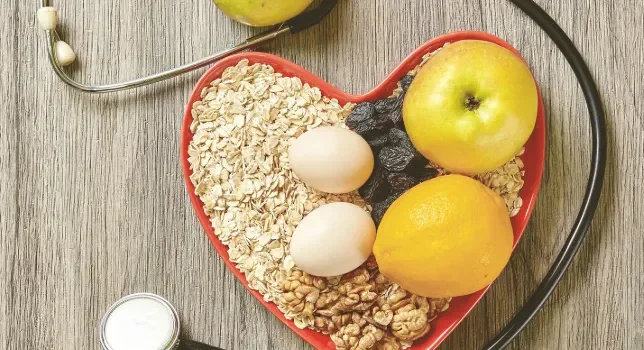High cholesterol is a common health issue affecting millions of people worldwide. When cholesterol levels are elevated, fatty deposits can build up in the arteries, increasing the risk of heart disease, stroke, and other serious health complications. The good news is, there are numerous strategies to help manage cholesterol levels and reduce associated risks.
Here’s a look at lifestyle changes, dietary adjustments, medications, and alternative remedies that can help control high cholesterol.
Lifestyle Changes to Improve Cholesterol
Making certain lifestyle changes can significantly impact cholesterol levels, sometimes eliminating the need for medications. Here are some effective strategies:
- Get Active
The American Heart Association (AHA) recommends at least 150 minutes of moderate aerobic activity per week to boost HDL (the “good” cholesterol). Activities like brisk walking, swimming, or cycling can make a significant difference in your cholesterol levels. Even shorter, gentler workouts provide benefits compared to being sedentary. - Quit Smoking
Smoking lowers HDL levels, raises LDL (the “bad” cholesterol), and increases triglycerides. The risks for heart disease are significantly higher in smokers, and these risks persist for up to 30 years after quitting. By quitting, you improve your cholesterol and overall cardiovascular health. - Drink Alcohol in Moderation
Moderate alcohol consumption has been linked to higher HDL levels. However, drinking excessively can increase triglycerides and blood pressure, so it’s important to limit alcohol intake. The AHA suggests one drink per day for women and two for men as the maximum recommended amount. - Lose Excess Weight
Carrying extra weight, especially around the abdomen, is associated with poor cholesterol levels. Even a modest weight loss of 5-10% of your current body weight can significantly improve LDL levels, increase HDL, and lower total cholesterol.
Dietary Changes for Better Cholesterol Control
Incorporating certain foods into your diet and avoiding others can also help regulate cholesterol levels.
- Limit Unhealthy Fats
Saturated and trans fats contribute to higher LDL levels. These fats are found in fatty meats, full-fat dairy products, butter, and many processed foods. Instead, focus on eating healthier fats, such as those found in olive oil, avocados, and fatty fish. - Add Avocados
Avocados are rich in monounsaturated fats, which help lower LDL and raise HDL. Eating one avocado per day has been shown to improve cholesterol levels by affecting all three key markers. - Increase Soluble Fiber Intake
Soluble fiber binds with LDL cholesterol and helps remove it from your body. Foods like fruits, vegetables, oats, barley, and beans are excellent sources of soluble fiber. Aim to include these foods in your diet regularly.
Medications for High Cholesterol
In some cases, doctors may prescribe medications in addition to lifestyle changes to help manage high cholesterol.
- Statins
Statins are the most commonly prescribed medications to lower LDL cholesterol. They work by blocking a liver enzyme that produces cholesterol, thereby reducing the amount of LDL in the bloodstream. Statins can lower LDL and raise HDL, while also reducing the risk of heart attack and stroke. - Non-Statin Medications
Other medications can help control cholesterol, such as:- Cholesterol absorption inhibitors: These prevent the absorption of cholesterol from food.
- Bile acid sequestrants: These remove LDL from the bloodstream.
- PCSK9 inhibitors: These help the liver remove more LDL from circulation.
- Fibrates and niacin: These medications mainly target high triglycerides and low HDL levels.
Alternative Remedies for Cholesterol Management
Before trying any alternative remedies, it’s essential to consult your doctor, as some supplements can interact with medications or cause side effects. Here are a few commonly used options:
- Psyllium Fiber
Psyllium, a soluble fiber, can help lower LDL cholesterol by binding to bile acids and preventing cholesterol absorption. A daily dose of 5 grams is sufficient for this benefit. - Fish Oil
Omega-3 fatty acids, found in fish oil, help raise HDL and lower triglycerides. A daily dose of 0.3 to 4 grams of combined EPA/DHA is typically recommended for cardiovascular health. - Coenzyme Q10 (CoQ10)
CoQ10 supports energy production in cells and has antioxidant properties. Supplementing with CoQ10 may help improve cholesterol breakdown and reduce levels of LDL and total cholesterol. - Plant Sterols
Plant sterols, found in foods like fortified margarine, can help reduce cholesterol absorption in the gut. A daily dose of at least 0.8 grams can lower circulating cholesterol levels by 5-15%.
Conclusion
Managing high cholesterol is crucial for reducing the risk of heart disease, stroke, and other cardiovascular conditions. Through a combination of lifestyle changes, dietary adjustments, medications, and alternative remedies, you can take control of your cholesterol levels. Always consult your doctor before making significant changes, especially when considering supplements or medications, to ensure you are making the best choices for your health.











